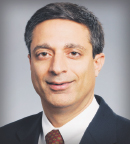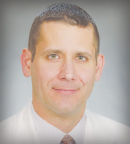The studies of ALLO-715 “off-the-shelf” CAR T-cell therapy and bb21217 impressed two experts in the field. Sagar Lonial, MD, the Anne and Bernard Gray Family Chair in Cancer, Chair and Professor of Hematology and Medical Oncology, Emory University School of Medicine, Atlanta, and Adam D. Cohen, MD, Associate Professor of Medicine, Abramson Cancer Center at the University of Pennsylvania, Philadelphia, spoke to The ASCO Post about the findings.
The studies presented at ASH show the promise of “the next wave of CAR-T therapeutics,” Dr. Lonial said. “We are thinking of alternative ways to get cell therapies to patients that have novel mechanisms of action or better persistence and are easily doable.”

Sagar Lonial, MD

Adam D. Cohen, MD
ALLO-715: Many Potential Advantages and Questions
An Allogeneic CAR T-cell product will not require apheresis, will eliminate issues that can stem from bridging therapy, and may offer the potential for repeat treatments. “This represents an important step forward,” Dr. Lonial said.
Commenting on ALLO-715, Dr. Cohen noted it appears well tolerated, with no high-grade cytokine-release syndrome, neurotoxicity, or graft-vs-host disease and a limited need for tocilizumab and/or steroids. He also observed that response rates were “somewhat lower than we’ve seen with several recent autologous BCMA CAR-T products (42%),” However, higher doses (320 x 106 cells) led to response rates of 62%, with 38% being very good partial responses or complete responses, he pointed out. Dose escalation is ongoing.
There remain a number of questions that need answering, Dr. Cohen said. For one, will the enhanced immunosuppression with the anti-CD52 antibody ALLO-647 (in addition to standard cyclophosphamide with or without fludarabine), which is required to limit rejection of the allogeneic cells by the host immune system, lead to more frequent or severe infections? “So far, this doesn’t seem to be the case,” he said, “though there was one treatment-related death, and follow-up is relatively short.”
Secondly, how well will the infused cells expand and persist? At the 320 x 106 dose level, CAR vector copy numbers > 1,000 copies/μg DNA were observed out to 8 weeks postinfusion, “demonstrating that persistence is certainly possible for a couple months,” Dr. Cohen said. “Whether this will be enough to induce durable remissions requires longer follow-up, but, overall, this is an important proof-of-principle study that may ultimately lead to a novel, ‘off-the-shelf’ cellular therapy for myeloma.”
Hope for Long-Term Persistence With bb21217
BCMA CAR T cells have unprecedented response rates in highly refractory myeloma, but durability of responses remains an issue. “One of the challenges with existing data for CAR-T in plasma cell disorders is the half-life or persistence of the CAR T cells. Unlike what we see in large B-cell lymphoma or acute lymphoblastic leukemia, where persistence doesn’t seem to be as important in terms of long-term remissions and cure, in myeloma that may not be the case,” Dr. Lonial said.
He and Dr. Cohen were hopeful, based on the data from CRB-402 presented by Dr. Alsina, that bb21217 may offer long-term persistence because of its makeup. “The updated results demonstrate that the incorporation of a PI3 kinase inhibitor during CAR T-cell manufacturing can enrich the proportion of T cells within the final product that have desirable naive or memory-like properties, features that correlated with greater expansion and more durable responses within the study,” Dr. Cohen observed.
The toxicity profile, overall response rates, and complete response rates with bb21217 seem “fairly similar” to those of idecabtagene vicleucel (bb2121) in a similar patient population, but the duration of response with bb21217 (median = 17.0 months) appears longer that that reported with idecabtagene vicleucel (median = 10.7 months) in the phase II KarMMa study, at a similar range of doses,1 he pointed out.
“It looks, on the surface with a small number of patients, that progression-free survival at least may be longer with bb21217, but we need to see if this holds up in a larger cohort … and whether we are changing the safety profile of incubated T cells,” Dr. Lonial added.
If larger studies confirm these findings, they said, bb21217 appears to be a promising approach for further improving outcomes from CAR T-cell therapy in myeloma.
DISCLOSURE: Dr. Lonial holds stock or other ownership interests in TG Therapeutics; has served as a consultant or advisor to AbbVie, Amgen, Bristol Myers Squibb, Celgene, GlaxoSmithKline, Janssen Oncology, Merck, Novartis, Sanofi, and Takeda; has received research funding from Bristol Myers Squibb, Celgene, and Takeda; and has held other relationships with TG Therapeutics. Dr. Cohen has served in a consulting or advisory role for Bristol Meyers Squibb, Celgene, GlaxoSmithKline, Janssen Oncology, Oncopeptides, Seattle Genetics, Genentech/Roche, AstraZeneca, and Takeda; has received research funding from Novartis; and holds patents related to CAR T-cells and biomarkers of cytokine-release syndrome.
REFERENCE
1. Munshi NC, Anderson LD, Shah N, et al: Idecabtagene vicleucel (ide-cel; bb2121), a BCMA-targeted CAR T-cell therapy, in patients with relapsed and refractory multiple myeloma: Initial KarMMa results. ASCO20 Virtual Scientific Program. Abstract 8503.

